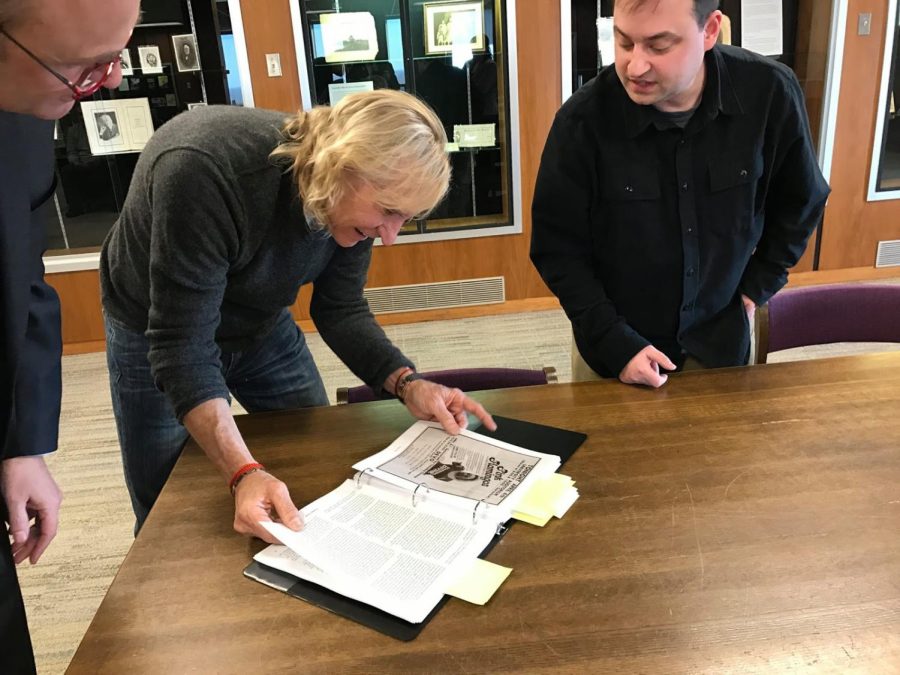Q&A with KSU alumnus, author Jason Prufer
Kent State Provost Todd Diacon, Joe Walsh of The Eagles and Jason Prufer looking at a manuscript of “Small Town, Big Music” on the 12th floor of the KSU library.
February 9, 2019
The following is an interview with Jason Prufer, a senior library associate at Kent State and the author of “Small Town, Big Music: The Outsized Influence of Kent, Ohio, on the History of Rock and Roll.”
KentWired: How did you get started with the book?
Jason Prufer: The research for the book came in 2010 for the 100-year anniversary of Kent State University. I was asked to do a gallery show of all the cool rock ‘n’ roll stuff that happened on campus in the ‘60s, ‘70s and ‘80s. We put together a big gallery show called “Extraordinary Appearances,” and we had it on the third floor of the library. We printed about 40 posters from the original performances by Pink Floyd, Stevie Wonder and Peter Gabriel. The event was a big success, and I had a colleague at the event say, “Hey, you should really write a book.” And that was the beginning of it.
KW: Why did you decide to write the book?
JP: Because most of the information was about to be completely forgotten. A lot of the people who are sort of characters in the book or who performed here are all in their 70s now. I felt that this information was about to get lost, and I needed to get the information out, talk to these people before it was too late, get their stories, plunder their archives and photographs because nobody was on the story. If I didn’t do it then, it wouldn’t get done. I had never had any aspirations to be an author, but if I had to become an author to make sure that this information and these stories were to survive or to be carried onto future generations, then that’s what I had to do.
KW: What is your connection to Kent?
JP: I was born and raised here, so I spent my entire life here. My father was a 40-year faculty member here, so I basically grew up on this campus. The first institution I was put into was at Kent State University at 2 years old in 1977 at the Child Development Center.
KW: What was your favorite part of working on this book?
JP: Hearing the stories from these people. Everybody who talked to me was like waiting for someone to come and ask them about their experiences. Hearing these people tell these stories for the first time in 50 years was great, and also being able to get more out of them and things they’ve never said before. I used a lot of lawyer tricks when I would interview these people, except a lawyer’s goal is to get to the truth. But a lawyer is usually getting to the truth because something bad happened. I’m trying to get to the truth because something incredible happened. I would use these tricks to try to get to the facts versus what the legend might be.
KW: What does Kent State mean to you?
JP: It’s sort of my livelihood. It took care of my father. It took care of my mother, and now it’s taking care of me. My book is sort of a love letter to Kent State and the city of Kent.
Lauren Crenshaw covers humanities and libraries. Contact her at [email protected].

























